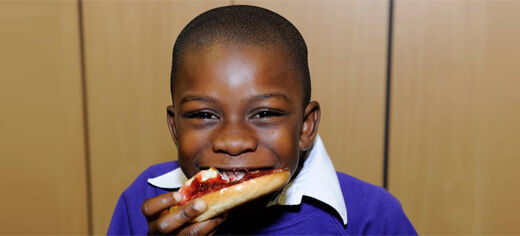
As children head back to school this week, new research by the University of Leeds has shown that children who eat breakfast are more likely to have higher school grades.
The findings, from the University’s Human Appetite Research Unit, demonstrate that children who consume breakfast are able to focus better on classroom tasks than those who do not and children who eat breakfast regularly are more likely to have better academic performance than those who don’t.
The comprehensive literature review of 36 studies between 1950 and 2013 looked at 14 studies of the effect of breakfast on behavior, 17 on the difference the meal made to academic performance, while five looked at both.
Katie Adolphus, lead author, said: “Those children who regularly eat breakfast are more likely to have higher school grades. Those children who skip breakfast have more difficulty focusing on classroom tasks and concentrating in class, which is apparent in both well and undernourished children and children from deprived backgrounds. This has implications for school performance.
“Children from deprived backgrounds and those who are undernourished may not skip breakfast by choice, but rather due to limited availability of food at home.”
In the wake of the research, leading children’s food charity Magic Breakfast is announcing it is expanding its programme of free school breakfast provision to 8,000 children - an increase of over 1,000 children from the start of the year. The charity now runs a vital food service reaching 240 schools across England, with 160 schools on its waiting list requesting urgent aid at the beginning of the autumn term.
The founder of Magic Breakfast, Carmel McConnell, said: “Many children survive on very little food over the school holidays, so we work closely with our school partners to ensure they get a good breakfast, and are encouraged to eat their hot school lunch, right from the start of term. Teachers tell us it can take several weeks to return children to pre-holiday health.
“Our healthy breakfasts are delivered free of charge to schools hit hardest by food poverty. For a small charity 8,000 children is a huge number to feed every day, but we can’t allow these children to miss a morning of classroom concentration simply because they are too hungry to learn”.
The research was published in the journal Frontiers In Human Neuroscience.
Further information
To arrange an interview with Carmel McConnell, founder of Magic Breakfast and Katie Adolphus from the University of Leeds, please contact:
Ben Jones
Press Officer, Communications, University of Leeds on 0113 34 38059 or email: B.P.Jones@leeds.ac.uk
Sophia Dettmer, Southwick Media Consultancy, on 07803 800164 or email: sophia.dettmer@southwickmedia.co.uk
The details of the paper are:
Front. Hum. Neurosci., 08 August 2013
Adolphus K, Lawton C and Dye L: "The effects of breakfast on behavior and academic performance in children and adolescents” doi: 10.3389/fnhum.2013.00425